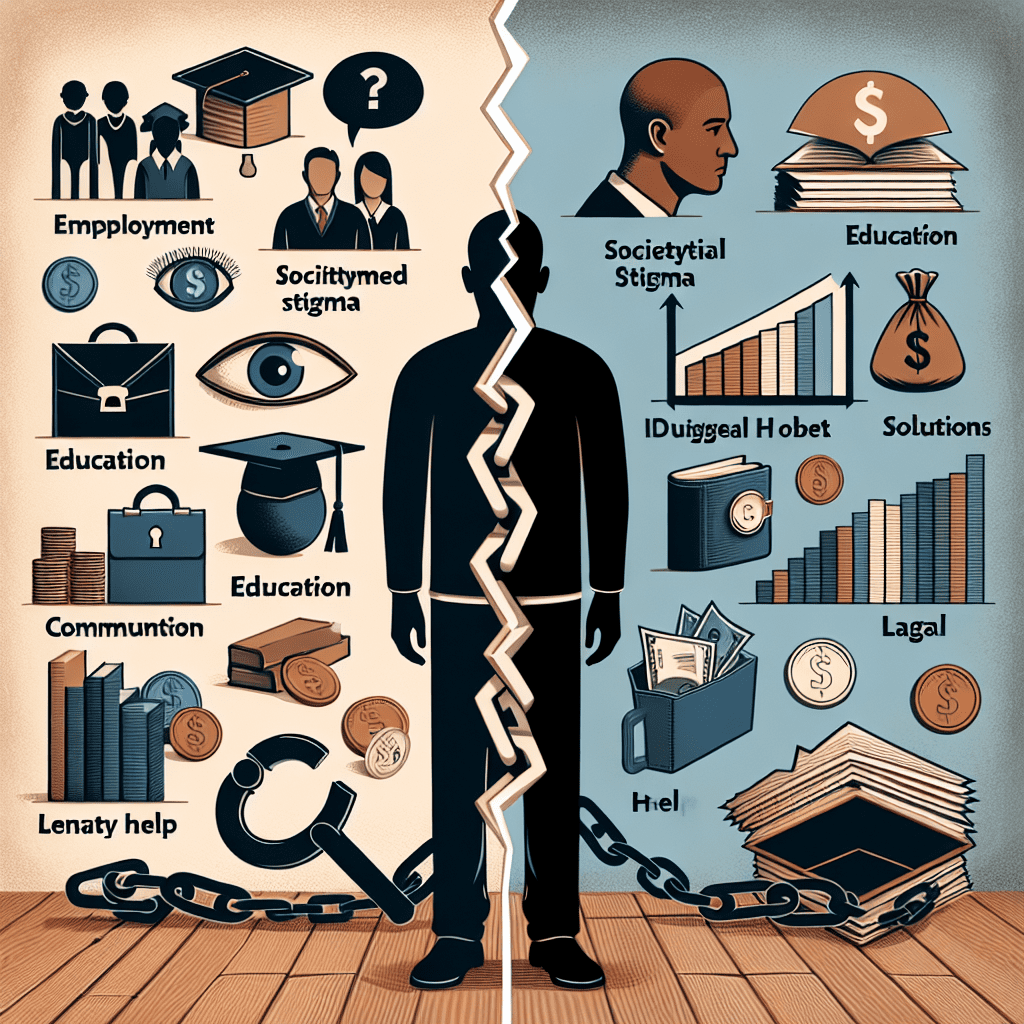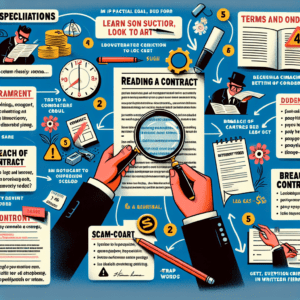“Your Past Doesn’t Define You – Learn How to Overcome a Criminal Record and Rebuild Your Future.”
Long-Term Consequences of a Criminal Record on Employment and Housing
A criminal record can have far-reaching consequences that extend well beyond the initial legal penalties. One of the most significant and lasting effects is its impact on employment and housing opportunities. These two aspects of life are essential for stability and personal growth, yet individuals with a criminal record often face considerable challenges in securing both. Understanding these challenges and exploring potential solutions can help mitigate the long-term consequences of a criminal history.
When it comes to employment, many employers conduct background checks as part of the hiring process. A criminal record, even for a minor offense, can raise concerns about an applicant’s reliability, trustworthiness, and overall suitability for a position. Some industries, such as healthcare, finance, and education, have strict regulations that prohibit individuals with certain convictions from being employed. As a result, individuals with a criminal record may find themselves disqualified from jobs for which they are otherwise qualified. Even in cases where there are no legal restrictions, employers may be hesitant to hire someone with a criminal history due to concerns about workplace safety, liability, or company reputation.
Furthermore, the stigma associated with a criminal record can make it difficult for individuals to advance in their careers. Many promotions and leadership positions require background checks, and a past conviction may limit opportunities for professional growth. This can lead to financial instability, making it harder for individuals to support themselves and their families. Without stable employment, the risk of recidivism increases, creating a cycle that is difficult to break.
In addition to employment challenges, securing stable housing can also be a significant hurdle for individuals with a criminal record. Many landlords conduct background checks on prospective tenants, and a criminal history can be a deciding factor in whether an application is approved or denied. Property owners may be concerned about potential risks, such as property damage or disturbances, and may prefer to rent to individuals without a criminal background. In some cases, housing policies explicitly prohibit individuals with certain convictions from renting, particularly in federally subsidized housing programs.
The difficulty in finding housing can lead to unstable living conditions, including homelessness or reliance on temporary accommodations. Without a permanent address, securing employment becomes even more challenging, further exacerbating financial and social difficulties. This lack of stability can also impact family relationships, making it harder for individuals to rebuild their lives after serving their sentence.
Despite these challenges, there are steps that individuals with a criminal record can take to improve their chances of securing employment and housing. One option is to seek expungement or record sealing, which can remove or limit public access to certain criminal records. While eligibility varies by jurisdiction, successfully expunging a record can significantly improve job and housing prospects. Additionally, some states have enacted “ban the box” laws, which prohibit employers from asking about criminal history on initial job applications, giving individuals a fairer chance to demonstrate their qualifications.
Another approach is to pursue education and vocational training, which can make individuals more competitive in the job market. Many employers value skills and experience, and obtaining certifications or degrees can help offset concerns about a past conviction. Additionally, working with reentry programs and nonprofit organizations that assist individuals with criminal records can provide valuable resources, including job placement assistance and housing support.
Ultimately, while a criminal record presents significant obstacles, it does not have to define a person’s future. By understanding the challenges and taking proactive steps to address them, individuals can work toward rebuilding their lives and achieving long-term stability.
How a Criminal Record Impacts Your Finances, Education, and Relationships

A criminal record can have far-reaching consequences that extend beyond legal penalties, affecting various aspects of an individual’s life. One of the most significant areas impacted is financial stability. Many employers conduct background checks as part of the hiring process, and a criminal record can make it difficult to secure a well-paying job. Certain industries, such as finance, healthcare, and education, have strict regulations that may disqualify individuals with specific convictions. Even when employment opportunities are available, individuals with a criminal record may face lower wages and limited career advancement. This financial strain can make it challenging to meet daily expenses, secure housing, or build long-term financial security.
In addition to employment challenges, a criminal record can also affect access to financial resources. Many financial institutions consider criminal history when evaluating loan applications, making it more difficult to obtain a mortgage, car loan, or business funding. Landlords may also conduct background checks, leading to potential difficulties in securing rental housing. As a result, individuals with a criminal record may find themselves in a cycle of financial instability, struggling to rebuild their lives even after serving their sentence.
Beyond financial consequences, a criminal record can also create barriers to education. Many colleges and universities require applicants to disclose their criminal history, and some institutions may deny admission based on past offenses. Even when admission is granted, students with a criminal record may be ineligible for federal financial aid, scholarships, or work-study programs, making it more difficult to afford higher education. Without access to education and training, individuals may find it even harder to secure stable employment, further perpetuating financial difficulties.
Furthermore, professional licensing requirements can pose additional challenges. Many careers require state-issued licenses, and a criminal record may disqualify individuals from obtaining the necessary credentials. Fields such as law, healthcare, and real estate often have strict licensing regulations, limiting career options for those with a criminal history. This restriction can make it difficult for individuals to pursue meaningful employment, even if they have the skills and qualifications needed for the job.
In addition to financial and educational barriers, a criminal record can also impact personal relationships. Family dynamics may change as trust is affected, and individuals may experience strained relationships with loved ones. In some cases, a criminal record can influence child custody decisions, as courts may consider past offenses when determining parental rights. Social stigma can also make it difficult to form new relationships, as friends, colleagues, and romantic partners may view a criminal record negatively. This isolation can lead to emotional distress and make reintegration into society more challenging.
Despite these challenges, there are steps individuals can take to mitigate the impact of a criminal record. Expungement or record sealing may be an option in certain cases, allowing individuals to remove or restrict access to their criminal history. Seeking legal counsel can help determine eligibility for these processes. Additionally, pursuing education and vocational training can improve employment prospects, while networking and community support can provide valuable resources for rebuilding one’s life. By taking proactive steps, individuals with a criminal record can work toward financial stability, educational opportunities, and stronger relationships, ultimately improving their overall quality of life.
Legal Options for Expungement and Reducing the Impact of a Criminal Record
A criminal record can have long-lasting consequences, affecting various aspects of a person’s life, including employment opportunities, housing applications, and even personal relationships. However, legal options exist to help mitigate these effects, offering individuals a chance to move forward. One of the most effective ways to reduce the impact of a criminal record is through expungement, a legal process that removes or seals a conviction from public records. While eligibility for expungement varies by jurisdiction, many states allow individuals to petition for the removal of certain offenses, particularly non-violent or first-time offenses. This process can significantly improve a person’s ability to secure employment, as many employers conduct background checks and may be hesitant to hire someone with a criminal history. By having a record expunged, individuals can legally state that they have not been convicted of a crime in most situations, providing them with a fresh start.
In addition to expungement, some jurisdictions offer record sealing as an alternative. While sealing does not erase a conviction, it restricts access to the record, making it unavailable to the general public, including most employers and landlords. This can be particularly beneficial for individuals seeking housing, as landlords often conduct background checks before approving rental applications. A sealed record can prevent past convictions from influencing these decisions, allowing individuals to secure stable housing without the stigma of a criminal past. Furthermore, some states provide options for reducing felony convictions to misdemeanors, which can lessen the severity of the consequences associated with a criminal record. This process, often referred to as reclassification or reduction, can make a significant difference in employment prospects and other areas of life where a felony conviction may pose a barrier.
For those who do not qualify for expungement or record sealing, other legal remedies may be available. Some states offer certificates of rehabilitation or good conduct, which serve as official recognition that an individual has demonstrated positive behavior and rehabilitation since their conviction. These certificates can be particularly useful when applying for jobs or professional licenses, as they provide evidence of reform and responsibility. Additionally, in certain cases, individuals may seek a pardon from the governor or another relevant authority. While pardons do not erase a conviction, they can restore certain rights, such as the ability to own firearms or serve on a jury, and may improve employment prospects by signaling official forgiveness.
Beyond legal remedies, individuals with a criminal record can take proactive steps to minimize its impact. Seeking educational opportunities, obtaining professional certifications, and building a strong work history can demonstrate rehabilitation and commitment to personal growth. Many employers value skills and experience over past mistakes, and demonstrating a strong work ethic can help overcome the challenges associated with a criminal record. Additionally, working with legal professionals or nonprofit organizations that specialize in criminal record relief can provide valuable guidance on available options and the steps necessary to pursue them.
Ultimately, while a criminal record can present significant challenges, legal avenues exist to reduce its impact and provide individuals with a second chance. By exploring options such as expungement, record sealing, and other forms of relief, individuals can take meaningful steps toward rebuilding their lives. Understanding these legal remedies and taking proactive measures can help those with a criminal history move forward with confidence and greater opportunities for success.
















